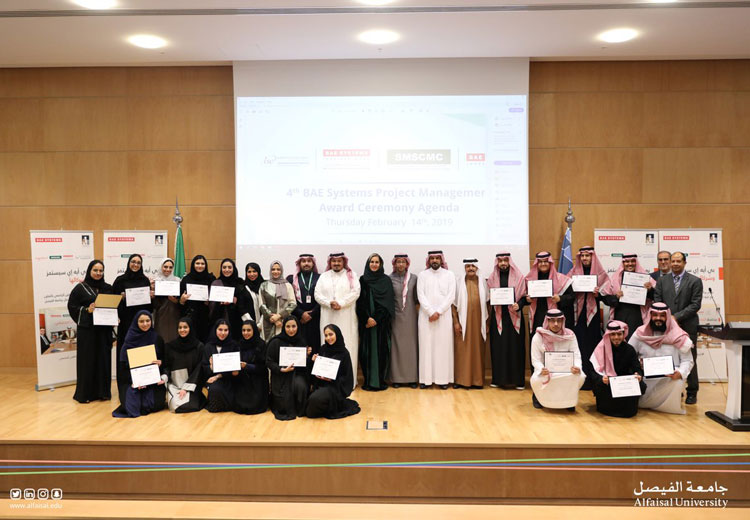Supporting hospitals in times of crisis

Sponsored by

Sponsored by

Researchers from the operations and project management department at Alfaisal University in Riyadh have been using their skills to ensure that hospitals make the most of their resources during the Covid-19 pandemic
One of the challenges for hospitals across the globe during the Covid-19 pandemic has been how to deploy their resources when hit by unusually high demand for their services or by unexpected equipment shortages.
Hospitals in Saudi Arabia are no exception: they have grappled with how to dispatch ambulances and medics to emergencies while ensuring the safety of drivers and patients and have also wrestled with how to monitor and maintain supplies of vital personal protective equipment and how to best ensure that rooms and beds are used in the most efficient manner.
Dr Rahma Lahyani is assistant professor of operations management and quantitative methods at the College of Business at Alfaisal University in Riyadh. Alfaisal is the only university in the kingdom offering this major in what is a growing area of demand.
Dr Lahyani explains: “It’s a competitive business environment here in Saudi Arabia, with corporations relying on operations and project managers to achieve their strategic goals. There’s an increased demand for graduates who can apply business analytics techniques and use project management tools and quantitative methods that can optimise business performance.”
The College of Business has played an instrumental role in supporting Saudi Arabia’s hospitals, helping them to make optimal use of their resources during the pandemic. It has looked at two core aspects of hospital operations strategies: the efficient management of ambulances and prioritisation of patients; and how to maximise inventory and ensure an adaptable supply chain that can meet spikes in demand for equipment to treat patients. Both are complex optimisation problems with many variables and constraints, says Dr Lahyani.
“With ambulance dispatch, we have to look at ambulance disinfection after transportation of every Covid-19 suspicious case, the priority of transferring patients with medical emergencies (a patient who has had a stroke might need more urgent attention than someone with non-life-threatening Covid-19), modification of the location of available ambulances throughout the day in response to changes in the state of the system, and the capacity of the hospitals we take [patients] to.
“On the supply chain side, some hospitals have faced shortages of equipment, so hospitals with fewer cases have been sharing items where possible. This problem, called the inventory trans-shipment problem, controls the movement of products among hospitals and matches supply and demand by trans-shipping the excess stock of one hospital to another with insufficient stock,” Dr Lahyani explains. Hospitals have to estimate case numbers to determine the quantity of personal protective equipment, ventilators or drugs that are needed.
In May 2020, the College of Business received an internal grant from Alfaisal University’s research office to fund its work into optimising hospital transport and supply chains. Dr Lahyani has been collaborating on this research with Dr Maryam Darvish, a scholar from the Faculty of Business Administration at Laval University in Quebec.
Dr Darvish works for CIRRELT, a world-renowned research centre focusing on logistics and transport. “Our main objective is to provide healthcare managers with a road map to optimise their inventory and sharing systems during the crisis. We wanted to build a decision support system so they could make the best use of their available resources, manage their inventories and dispatch ambulances safely,” Dr Darvish says.
Dr Lahyani and her team started their work by collecting verbal descriptions of each problem and translating them into mathematical statements using economic modelling techniques. From hospitals, they collected data on variables such as capacity, the time and cost involved in disinfecting a vehicle and the different levels of emergency for patients with different conditions.
“We translated this complexity into a mathematical model that can be solved,” she explains. The team investigated the problems heuristically, which involves employing an approximate approach in order to reach a solution quickly, even if it is not the optimal solution. They then compared this approximate solution with those provided by the approaches actually undertaken by hospitals. “This allowed us to come to near-optimal solutions very quickly. Then we could give our decision support system to the hospital so they could use it to decide how to dispatch ambulances to each patient,” Dr Lahyani says.
When it came to looking at inventory, the operations management department drew on hospitals’ estimates of their supplies and projections of how many infected patients they might have to deal with.
“We used data analysis and sensitivity analysis to come up with different inventory scenarios for different hospitals, looking at numbers of infected patients, [and] which phase of the disease they might be in, as the equipment needed for each phase will be different,” says Dr Lahyani. “Comparison of scenarios is one of the main techniques we use in operations and inventory management, and which falls under the umbrella of artificial intelligence.” The results of this research are helping hospitals in Saudi Arabia forecast potential shortages of items such as gowns and masks and indicate where those with lower patient levels could share resources.
The research produced by the department will prove useful beyond the peak of the pandemic, for example, in future emergencies or periods of high demand, insists Dr Lahyani. “We want to increase the level of preparedness of hospitals if there is further disruption, such as another pandemic,” she says. “We want them to have the tools to be prepared to act immediately, to decrease the level of disruption if any major incidents happen in the future.”
The models her team have developed are “equally relevant and applicable” to a wide range of industries and public sector scenarios, too. A team of researchers is looking at how supply chains more generally have coped with disruption during the pandemic and how to improve their resilience.
Among future research projects is one exploring vehicle routing models, with the goal of creating a commercially competitive solution that makes logistics and transport more efficient. Dr Lahyani also wants to expand Alfaisal University’s research into big data and the supply chain, investigating how analysis of large data sets extracted from multiple sources improves delivery times, reduces communications gaps between manufacturers and suppliers, and builds links between suppliers and customers.
Find out more about Alfaisal University’s College of Business.